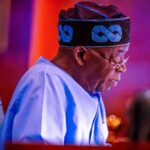The Nigerian economy could do with less of the current randomness that characterises the policy space. This is doing a lot of damage to the efforts aimed at rebuilding the economy; rather than showing a discernible recovery path, what the normal eye sees is rather an unpredictable trajectory along which the economy is being pulled.
There is too much arbitrariness in the management of the economy right now and that is the reason things seem to be getting worse for the ordinary people every day. There are too many variables changing or being changed arbitrarily. To make matters worse, some of these changes conflict with the objectives that the government has said it wants to achieve.
So, instead of moving steadily forward, even if at a slow pace, we find the economy in a circumlocutory movement. We can see some gain in one area, and the next moment we see another policy action in another area that wipes off whatever gains that have just been reported.
Therefore, the current chaotic situation in the economy is simply a product of an incoherent policy environment that fails to see the economy as a system. This should not continue; it must be addressed without further delay. If not checked, this random policymaking will result in delayed realisation of the objectives of the government.
- Duty-free solar panels classification in line with global standards – Customs
- Israel kills 248 Palestinians in ‘safe zones’ as rights groups condemn siege
You cannot be pulling the string in both directions and expect a movement. Take, for example, the recent hike in the price of petrol in the country. After weeks or months of infantile excuses related to weather and ships berthing and not being able to discharge, and all that, NNPCL came up last week with a hike in the price of petrol. That sent Nigerians to the streets as they searched for petrol. And this was at a time when the product was not available.
Interestingly, this was happening at the time the Dangote Refinery was making its debut as a player in the local market. How come Nigeria could not manage this epoch-making entry seamlessly? Why did the system subject Nigerians to such a harrowing experience, at a point that in other climes would have been a celebration? In line with the tradition in the extractive industry, the first pour of gasoline from the Dangote Refinery should have been a landmark event and celebrated for what it represents. But rather than that the citizens were served a dose of pain, anguish, and even death. At least one person was reported to have slumped and died after waiting for hours at a petrol station!
So, at the same time, Nigerians were battling with a new price for a product that was not even available. Again, this singular misadventure has re-calibrated Nigeria’s economic statistics. Prices have risen further (they were already high), and because prices are sticky downwards, it will take much longer for them to come down. In other words, any previous hopes of prices scaling down soon have been postponed. It does not matter whether or not the National Bureau of Statistics captures this in its inflation report for September or even a bit in August.
The reality in our markets, both in the cities and in the villages, is that prices of basic items have jumped, once again. This came just as Nigerians were about to heave a sigh of relief that prices had finally started to fall. And then, this came. Everything has been negatively impacted once again: transport fares have gone up, and nobody can blame the transport owners. You do not expect anyone to buy petrol or diesel now and sell his or her products at the former rates. This is simple economics, and that is what is lacking in most of the decisions being taken.
Even the explanation given by the NNPCL that the price increase was “inevitable” is inadmissible. Even if prices were to be increased, should it have been done in the manner and at the time it was implemented? Must price adjustments be punitive? If the claim that the price of petrol in Nigeria is determined by unseen market forces, how is it that such changes always come after the operator creates an artificial scarcity of the product?
True, there are a thousand and one problems to tackle in the economy today. There is no doubt about this. That is why not just anyone should be picked to handle economic challenges of the magnitude that we as a nation face. Those who carry the responsibility are together called the Economic Management Team, and going by that title, means that these challenges must be ‘managed.’ That entails, first, delineating the relationships that exist among the variables. That will help the policymakers determine when and how much to alter core policy variables, with, of course, some realistic estimates of the potential impacts on target variables.
But what we see currently is a yawning gap in policy coordination. Without coordination, policymaking becomes hazardous guesswork. This gap must be closed, and the time to do so is now, so Nigerians can enjoy the benefits of the government’s actions.

 Join Daily Trust WhatsApp Community For Quick Access To News and Happenings Around You.
Join Daily Trust WhatsApp Community For Quick Access To News and Happenings Around You.


